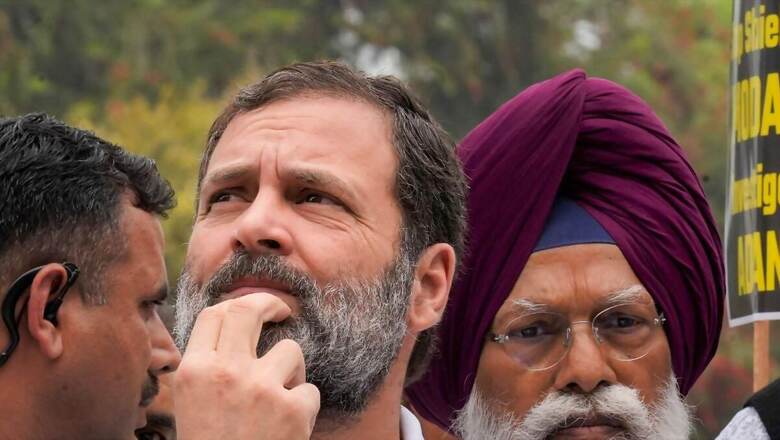
views
Other than being disqualified as an MP, he is barred from contesting elections for the next six years upon the completion of his two-year sentence. A cursory look at the legal and social history of independent India will tell you that big political battles are fought in the courts and streets simultaneously.
The rout of the UPA-II can be attributed to the anti-corruption movement and the intervention of the Supreme Court that led to cancellation of 2G licences. Indira Gandhi was convicted for electoral malpractices in the historic case of Raj Narain vs Indira Gandhi – a case that was a precursor to the dark days of the Emergency (1975-1977).
Political history tells us that legal battles are often a make or break for politicians. This one is for Rahul Gandhi. The role of the judiciary is crucial in the political nuts and bolts, in tweaking or setting political dynamics. Perhaps, 2024 will be one such election where constitutional courts will play a crucial and decisive role.
There are three options for Rahul Gandhi. First, to go to the sessions court and seek a stay. Mere suspension of the sentence or even bail is not enough. The court must grant a stay on conviction.
The second option is to move the high court or the Supreme Court directly. In this case, he will have to show extraordinary circumstances due to which a high court or a Supreme Court must intervene. He must further be able to show how his rights have been unduly infringed upon.
The third is to appeal to the President. All in all, he must secure a stay on his conviction to save his seat as an MP and to duck the bar on contesting elections for the next six years.
Even if the argument of the Congress is taken at face value that the magistrate court order is problematic, it is still an order on conviction and stands good in law unless stayed by a higher court. The Representation of the People Act (RPA), 1951, that laid down disqualification upon conviction was envisaged with an idea for decriminalisation of Indian politics.
The scheme of the RPA and subsequent interpretations by the Supreme Court is an endeavour for a parliament and legislature that has no place for criminals. A judgment given by the Supreme Court in 2013 laid down that upon conviction, disqualification must be immediate. The three-month window to appeal was also taken away.
It is perhaps the first time in Indian politics that a high-profile leader has been convicted for criminal defamation, handed down a maximum sentence and disqualified for the same. The other immediate disqualifications that have happened are for serious offences like hate speech, scams, rape, fraud, attempt to murder and disproportionate assets.
Lalu Prasad Yadav and Azam Khan are well-known examples. It is open to debate whether criminal defamation was envisaged to be covered under this provision. The Congress argues that the spirit of the law and democracy has been defeated. They will have to convince the courts too.
Playing the victim card can be a good political strategy for the next 30 days, till the sentence is suspended by the magistrate’s court. But before the expiry of this time period, Gandhi must secure a remedy from a court of law or else his political future is suspended for the next eight years.
The battleground for 2024 will also be affected by another important case before the Supreme Court. Fourteen opposition parties have moved the Supreme Court against the misuse of agencies like Enforcement Directorate and Central Bureau of Investigation.
Any intervention or even oral observations by the court will have a bearing on the political narrative and the ongoing investigation against many high-profile opposition leaders. Many more such cases can come up before the constitutional courts in the days to come.
2024 will not only be an intense political battle, it will also be fiercely fought in the courts. It will be a point in political history – where lines between political battles and legal combats blur – enjoying a symbiotic relationship, fuelling or depleting political ambitions.
Read all the Latest Politics News here
















Comments
0 comment